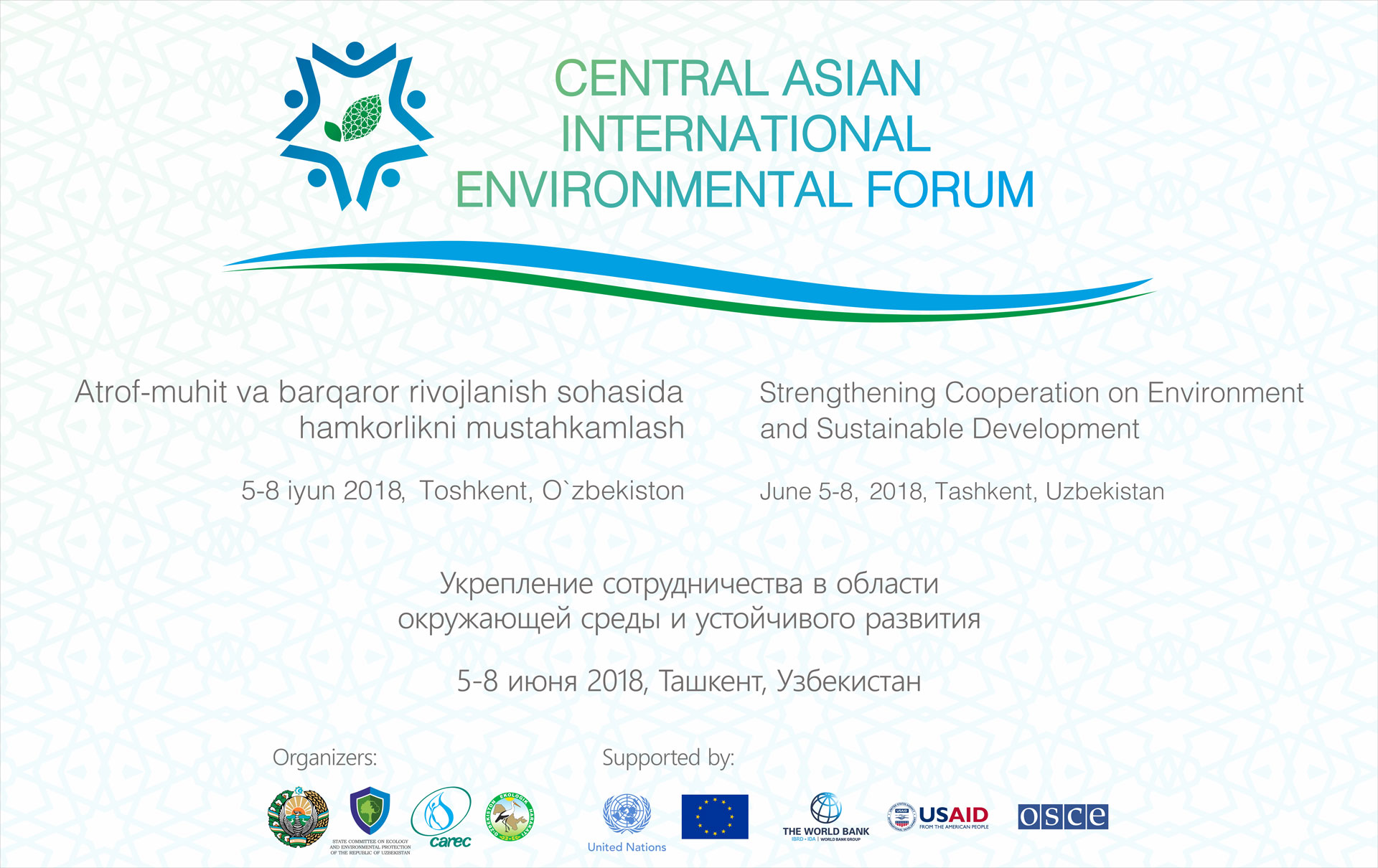
CAREC prepared a series of articles on the thematic areas of the Central Asian International Environmental Forum 2018: renewable energy sources and energy efficiency; integrated management of solid domestic waste; Conservation of biodiversity and development of a network of protected natural areas; water cooperation.
In this article, you can learn more about the thematic segment "Conservation of biodiversity and development of a network of protected natural areas", which is supervised by the CAREC Environmental Management Programme. Leading specialist of the programme, Saltanat Zhakenova, gave an interview to introduce the content of panel sessions devoted to the conservation of biodiversity.
Scientists warn that humanity is entering the "sixth mass extinction". The biodiversity crisis is reflected in the continuing degradation of ecosystems and the irreversible decline in genetic and species diversity. For example, there is a critical reduction in pollinating species, in particular bees. Today, there are 250,000 species, flowering plants and trees that are naturally pollinated. Saltanat Zhakenova noted that a misunderstanding of the depth and degree of dependence on ecosystems will someday force a high price to be paid for inaction: "Biological diversity helps not only to regulate the climate by accumulating carbon, filters air and water, but also mitigates the consequences of such natural disasters, such as landslides, droughts, floods and coastal storms. I'm not talking about direct benefits, which include wood, fish, medicines derived from plants, as well as the feeling of peace and happiness that we receive from nature. "
Protected natural areas remain to be the most effective ways to preserve the biological diversity. The Secretary-General of the United Nations Convention on the Conservation of Biological Diversity, Christian Palmer, already calls for the expansion of areas up to 50% with ecosystem-friendly management decisions. "Such opportunities are designed to close the gap between science, business and the decision-making process at the regional, national and local levels," Saltanat explained.
In 2010 in Aichi (Japan), all Parties to the Convention, including Central Asian countries, adopted the targets and the Strategic Plan for Biodiversity Conservation and Sustainable Use for 2011-2020. The importance of biodiversity for sustainable development is reflected in the Goals of Sustainable Development (SDG), goal 14 "Life underwater" and goal 15 "Life on Earth". For the effective implementation of international obligations, first of all, partnerships at all levels are necessary. Saltanat stressed: "Biodiversity has no borders, therefore, the international commitments on the conventions and the SDGs are the basis for strengthening the regional partnership."
The forthcoming Central Asian International Environmental Forum 2018 will discuss not only institutional and legislative issues but also the problems of scientific provision. A separate session will be devoted to the involvement of the business sector through the development of a public-private partnership tool in protected natural areas. "We expect an interesting discussion and exchange of views on global trends, the regional context and country reports. Among the speakers are members of national delegations, as well as speakers of the international and regional level, including our partners. For example IUCN, the International Union for the Protection of Nature " Ms Zhakenova noted.
Better integration between sectors to manage natural resources can help to avoid negative consequences for nature and people. Cooperation of energy specialists, farmers and water managers will allow to find mutually beneficial decisions and reduce the negative impact on the biodiversity. A separate side-event on the forum will be devoted to the possibilities of multisectoral financing - the meeting of the Regional Coordinating Committee of the Nexus project. The project is financed by the European Union and implemented by CAREC in partnership with EC IFAS and the IUCN.
With the support of the international development partners, interesting and important projects and studies are already being implemented in the region, the results of which, according to Saltanat, need to be spoken at such events as the Central Asian International Environmental Forum. "I am sure that CAIEF will be able to give a turn to the expansion of scientific and technical cooperation and the development of joint projects, including the ones with the involvement of the business," Saltanat underlined. There is potential for harmonizing rules, procedures and methodologies in accordance with best international practice.
